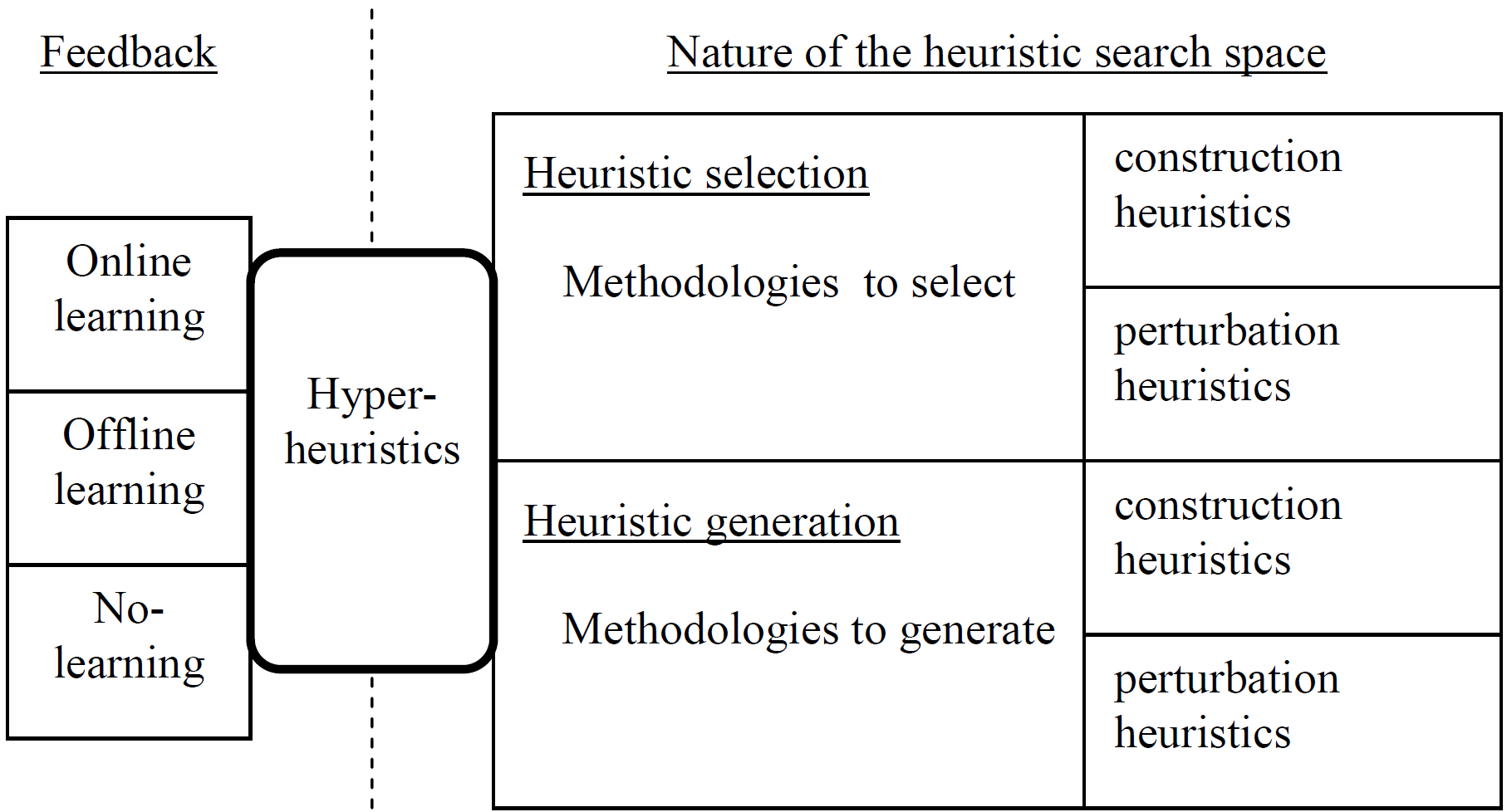
Stream on Hyper-heuristics
the 30th European Conference on Operational Research (EURO 2019), June 23-26, 2019
Dublin/Ireland
Call for Abstracts (Max. 1500 characters)
Session 1: Selection Hyper-heuristics (Submission Code: 39acc144)
Session 2: Generation Hyper-heuristics (Submission Code: ffd15a62)
Hyper-heuristics are problem-independent generic solvers which have been successfully applied to a wide range of combinatorial search problems both from academia and real-world, such as timetabling, scheduling, routing, rostering, cutting and packing.
The studies on this field is mainly considered under two categories (Figure 1), namely Selection and Generation Hyper-heuristics.
Selection Hyper-heuristics operate by automatically choosing (low-level) heuristics from an existing heuristic set while the latter type focuses on generating heuristics from scratch based on predefined components.
These hyper-heuristics can have certain learning capabilities by incorporating Offline and Online learning.
Offline refers to learning before a hyper-heuristic run, mostly in the form of un-/supervised learning.
Online is about learning while a problem (~instance) is being solved, likely to be based on reinforcement learning.
It is also possible to design hyper-heuristics without learning.
Besides the learning aspect, the type of heuristics may differ as constructive and perturbative heuristics.

The aim of this stream is to gather researchers studying hyper-heuristics to share their research on all the aforementioned hyper-heuristic variations as well as the strategies developed to support hyper-heuristics.
This stream will be organized in connection with the Task Force on Hyper-heuristics within the Technical Committee of Intelligent Systems and Applications at the IEEE Computational Intelligence Society.| Important Dates |
|
Organizers
- Prof. Patrick De Causmaecker
Department of Computer Science, KU Leuven, Belgium
patrick.decausmaecker@kuleuven.be
- Dr. Mustafa Misir (if any questions, contact)
College of Computer Science and Technology, Nanjing Uni of Aeronautics and Astronautics, China
mmisir@nuaa.edu.cn
- Dr. Ender Ozcan
School of Computer Science, University of Nottingham, UK
ender.ozcan@nottingham.ac.uk
- Dr. Rong Qu
School of Computer Science, University of Nottingham, UK
rong.qu@nottingham.ac.uk